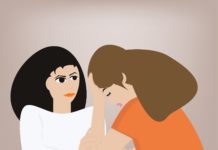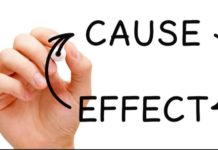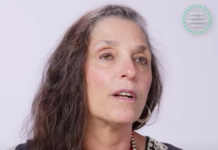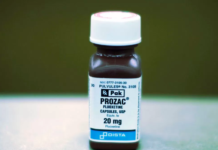Mental Health Professionals Critique the Biomedical Model of Psychological Problems
While a great deal of the excitement about advances in psychological treatments comes from the potential for research in neuroscience to unlock the secrets of the brain, many mental health experts would like to temper this enthusiasm. A special issue of the Behavior Therapist released this month calls into question the predominant conception of mental illnesses as brain disorders.
Psychosocially Oriented Psychologists Struggle Against the Medical Model
Interviews with psychosocially oriented psychologists demonstrate their experiences of discomfort with the hegemony of the medical model in their place of work and the conflicts that arise when they attempt to provide alternatives.
Effective Tactics for the “Rehumanizing Resistance”: Real Politics 101, Part Two
In Part Two, I discuss strategy and tactics for the Rehumanizing Resistance, including: (1) Traditional, Personal, and Underground Politics; (2) Direct Action and Confrontation: When It Can and Cannot Succeed (3) Organizing: Taking Advantage of the Current Cultural Climate; (4) Alliances and Coalitions; and (5) Film and Media. In Part One, I discussed how the Resistance has been winning scientific battles but losing the war against the expansion of influence of First-Order Psychiatry (which includes American Psychiatric Association and Big Pharma), and how this is due in large part to the First-Order’s effective political tactics and the Resistance’s political naivety.
Race and Class Affect Teacher Perceptions of ADHD Medication Use
Study uncovers teachers’ attitudes surrounding ADHD medication use and examines the influence of race and social class on teacher beliefs.
Doctors Need Support
An old friend suggested to me that doctors need support after hearing the messages in Robert Whitaker’s book, “Anatomy of an Epidemic”. I agree....
Antidepressants Are Not More Effective for Severe Depression, Study Finds
A new study, published in Acta Psychiatrica Scandinavica, found that antidepressant efficacy was not dependent on severity.
Researchers Suggest Traumatic Experiences May Cause Psychotic Symptoms
A new study in JAMA Psychiatry investigates the relationship between trauma and psychotic experiences.
Lack of Face-to-Face Contact Doubles Depression Risk for Older Adults
New research suggests that more frequent in-person contact lessens the risk of depression in older adults. The study, published in this month’s issue of the Journal of the American Geriatric Society, found that in Americans over fifty the more face-to-face contact they had with children, family and friends, the less likely they were to develop depressive symptoms.
You Can Have Any Kind of Treatment You Want, Providing it’s Our Kind
Mental health nurse education supports institutional psychiatric practice in an insufficiently questioning way. Its formal curricula in universities are often undermined by the informal curricula of practice environments. As an institution, mental health nursing pays insufficient attention to both these issues because it is an arguably un-reflexive and rule-following discipline.
The Curious Conundrum of Freud’s Persistent Influence
From The New York Times: Frederick Crews' new book The Making of an Illusion portrays Freud as relentlessly self-interested, irredeemably immoral, and interminably mistaken. Perhaps Crews...
Alternative Therapies for Adolescent Depression as Effective as CBT, Study Finds
Brief psychodynamic and psychosocial interventions help maintain reduced depressive symptoms
“The Rise of Mad Studies”
Mad Studies is emerging as a new academic discipline in Canada and proponents are challenging popular conceptions of “madness” and the medicalization human experiences.
Mental Health Industry Should Embrace Choices Beyond Drugs
In this video for NowThis, Yana Jacobs critiques the mental health industry standard of prescribing drugs as the first-line treatment for "mental illness." She emphasizes...
Help Write a Psychiatric Survivor Manifesto
This is a summary compiled by people in the mental health civil rights movement. Some of us call ourselves psychiatric survivors; those who have survived psychiatric treatment, not the “illness.” Many of us have found scientific evidence and our own personal experiences showing that emotional distress is not an illness. We have found recovery using a variety of approaches and methods, but here are several concepts of hope and empowerment repeated in many of our personal stories.
We Still Buy the Lie That Chemical Imbalances Cause Depression
From Quartz: Despite its inaccuracy, the chemical imbalance theory of mental illness continues to persist in public consciousness. The prevalence of this myth may be...
Fostering Secure Attachment Prevents Depression and Anxiety
Researchers from China and the Harvard Medical School studied the effects of anxious and avoidant attachment on the development of depression and anxiety in...
Using the Power Threat Meaning Framework in Mental Health Nurse Education
Scholars call for international mental health nurse curriculum to shift to a rights-based approach and teach the Power Threat Meaning Framework.
Addressing Depression and Heart Disease with Exercise and Physical Activity
A new study examines the effects of midlife exercise on depression and cardiovascular health later in life.
Food Insecurity Linked to Mental Health Globally
Global analysis of 149 countries finds food insecurity is associated with poorer mental health.
Talking Madness With Robert Whitaker
On Friday, June 9th, Robert Whitaker participated in a discussion with Lois Holzman about psychiatry, the medicalization of distress, and alternative practices. Click here to...
Western ‘Depression’ is Not Universal
Derek Summerfield, consultant psychiatrist at South London and Maudsley National Health Service Foundation Trust, challenges the assumption that Western depression is a universal condition.
Rethinking Psychiatry Teaches about Despair, Resilience, and the Great Turning
Rethinking Psychiatry is an independent, grassroots group in Portland, Oregon that advocates for a paradigm shift in mental health care. On January 20, we hosted a film and discussion by activist and artist Barbara Ford. The subject was “Despair and Resilience: How to Face this Mess We’re in Without Giving Up.” Ford also showed film called Joanna Macy and the Great Turning, featuring philosopher, writer, and activist Joanna Macy.
Differing Depression Diagnostic Tools May Influence Research Findings
The type of diagnostic assessment used in research settings, either fully structured or semi-structured interview, may affect which participants in receive a diagnosis of major depression.
“Redefining Mental Illness”
-Anthropologist Tanya Luhrmann reflects on the British Psychological Society's "Understanding Psychosis and Schizophrenia" document.
Madness Challenges Our Sense Of What It Is To Be Human
In The Lancet, psychiatrist and MIA Blogger Andrew Scull discusses the themes in his book Madness In Civilization. "Mental illness haunts the human imagination,"...























